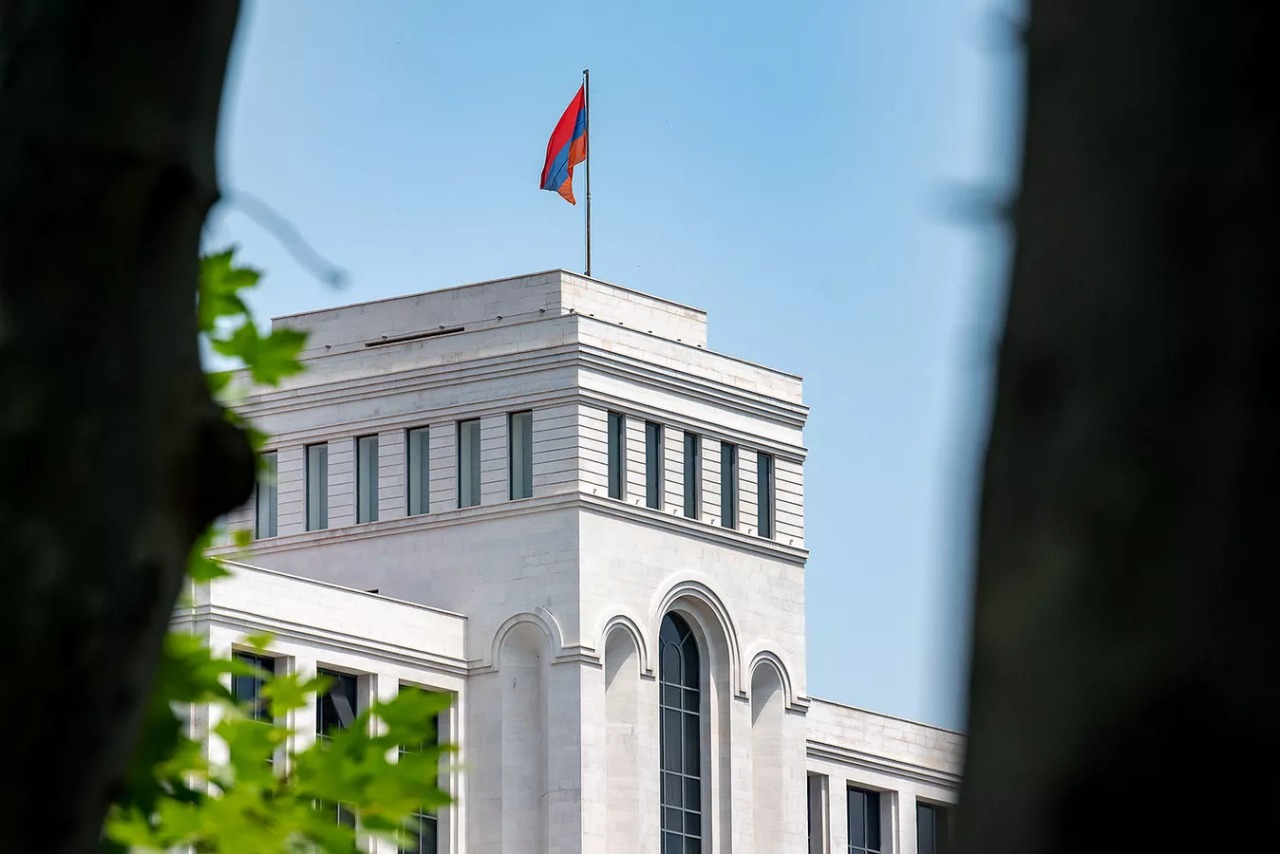
There is no such place as “Western Azerbaijan” on the territory of the Republic of Armenia—nor can there be, says Foreign Ministry
The Ministry of Foreign Affairs of the Republic of Armenia is deeply disappointed with the distorted and extremely one-sided formulations included in the “Istanbul Declaration” and the resolutions proposed by Azerbaijan, adopted within the framework of the recent ministerial conference of the Organization of Islamic Cooperation. The emphases expressed in these documents run counter to the interests and logic of establishing lasting peace in the region, the Ministry of Foreign Affairs said in a statement.
“We would like to draw the attention of OIC member states to the fact that the narrative of “Western Azerbaijan” constitutes a clear territorial claim by Azerbaijan against the sovereign territory of the Republic of Armenia, disguised under the pretext of human rights. Such claims are even reflected in the founding documents of a so-called “organization” artificially created for that purpose. It is worth recalling that “Western Azerbaijan” refers to Azerbaijan’s own western regions—namely, Qazakh, Tovuz, Aghstafa, Gadabay, Dashkasan, Kalbajar, Lachin, Gubadli, Zangilan, and Nakhichivan. There is no such place as “Western Azerbaijan” on the territory of the Republic of Armenia—nor can there be.
Regarding Azerbaijanis living in Soviet Armenia, they voluntarily left Armenia in the final years of the USSR, managing to sell or exchange their property or receive compensation from the Armenian government. Unfortunately, the same cannot be said for the fate of Armenians in Azerbaijan—in Baku, Sumgait, and other places, where massacres and forced displacement of Armenians took place. The most recent manifestation of this in our region was witnessed by the world in the fall of 2023, when over 115,000 Armenians were forced to flee Nagorno-Karabakh subjected to ethnic cleansing.
The indirect encouragement of such behavior by the OIC creates a logical inconsistency with the Organization’s stance on the crisis in the Middle East over the past two years.
The misinterpretation of the Khojaly events also causes astonishment. The true history of crimes against humanity is well-known and directly refutes any accusations against the Republic of Armenia.
It is regrettable that the adopted declaration, deviating from the statements made by OIC members in March of this year and subsequently regarding the conclusion of the Agreement on establishment of interstate relations and peace between Armenia and Azerbaijan, contains one-sided assertions about the preconditions existing on the path to signing the agreement. We draw the attention of OIC members to the fact that Armenia has expressed its readiness to sign the Agreement without any delay, proposing to start consultations on the venue and date of its signing, as well as offering constructive solutions to address a number of issues raised by Azerbaijan. It would be more logical for partners interested in establishing peace in the region to urge Azerbaijan to sign the agreement without unnecessary delay, refraining from creating artificial obstacles in this process.
Another matter of deep regret is the resolution adopted on the protection of cultural heritage. Ignoring the ongoing destruction of Armenian cultural heritage under Azerbaijani control and the systematic acts of vandalism against it, the resolution frames the issues with religious connotation, thereby fueling false and dangerous narratives. Armenia’s respect for and careful treatment of Islamic cultural heritage is well known and easily provable.
The Ministry of Foreign Affairs calls on the member states of the Organization of Islamic Cooperation that have joined the aforementioned declaration and resolutions to review and resolutely reject biased initiatives that target Armenia’s territorial integrity and sovereignty and jeopardize the normalization process between Armenia and Azerbaijan.
There is a genuine opportunity to establish peace in the South Caucasus, and any such approach demonstrated by an international organization does not contribute to the effective realization of that opportunity. The Republic of Armenia remains committed to the strategy of implementing the peace agenda and expects from its international partners, including the Organization of Islamic Cooperation support for the efforts to establish lasting and sustainable peace between Armenia and Azerbaijan,” the ministry stated.


